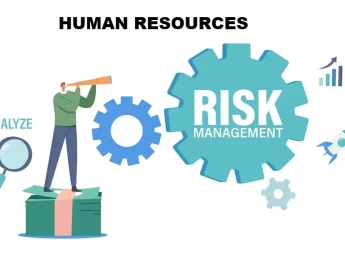Corporate governance and compliance are critical elements in any organisation's framework, ensuring transparency, accountability, and ethical conduct. Corporate governance refers to the system by which companies are directed and controlled, encompassing the relationships between stakeholders such as shareholders, management, employees, customers, and the broader community.
Compliance involves adherence to laws, regulations, and internal policies that govern business operations. These concepts are important because they can foster trust and confidence among investors, customers, and the public. Effective corporate governance and compliance mechanisms safeguard against unethical practices, financial mismanagement, and legal violations.
They contribute to a business's long-term sustainability by promoting responsible decision-making, risk management, and a culture of integrity. Ultimately, a robust corporate governance and compliance framework protects stakeholders' interests and enhances the organisation's reputation and success in the global business landscape.
Upon completion of this course, participants will be able to:
- Be familiar with the Corporate Governance Code and its alignment with local legal frameworks.
- Recognise pivotal regulatory themes influencing corporate governance.
- Be aware of the dynamic responsibilities of the board.
- Understand the contribution of directors in establishing positive corporate conduct.
- Identify the contemporary challenges related to corporate reporting for companies.
- Appreciate the need for boards to address diversity, transparency, and succession planning issues.
This course is designed for anyone responsible for managing risks, security or governance in large-scale contracts for a business. It would be most beneficial for:
- Business Owners
- Board Members
- Solicitors
- Auditors
- Risk Assessors
- Change & Control Managers
- HR Managers
- Department Managers
- Executives
- Finance Personnel
- Accountants
- Financial Controllers
- Senior Managers
- Directors
This course uses a variety of adult learning styles to aid full understanding and comprehension. Participants will review various real-world case studies of corporate governance and compliance models to understand what works well and what doesn’t regarding contractual requirements, risk assessments, and procedural implementation.
They will take part in several group activities to review contracts and discuss the next steps regarding safeguarding contracts. They will also work in a trainer-led discussion group to understand the responsibilities of each relevant party and stakeholder when it comes to upholding agreements and delivering results.
Day 5 of each course is reserved for a Q&A session, which may occur off-site. For 10-day courses, this also applies to day 10
Section 1: What Does Compliance Mean for You?
- Key principles of compliance.
- Regulatory landscape in the UK.
- Responsibilities of individuals and organisations.
- Importance of compliance in business.
- Compliance frameworks and standards.
- Compliance monitoring and reporting.
- Case studies on compliance failures.
Section 2: Daily Operations & Monitoring
- Monitoring tools and technologies.
- Establishing effective daily operational routines.
- Case studies highlighting successful daily monitoring.
- Challenges and solutions in daily operations.
- Continuous improvement strategies for monitoring processes.
- Integrating technology for real-time monitoring.
- Regulatory compliance in daily operations and monitoring.
Section 3: IT Support for Governance Processes
- Technology tools for enhancing enforcement processes.
- IT infrastructure for governance support.
- Cybersecurity measures in governance systems.
- Data privacy and compliance in IT governance.
- Integration of IT tools for policy implementation.
- Case studies on effective IT support in governance.
- Incident response and management in IT governance.
- Training and skill development for IT support teams.
- Emerging technologies in governance IT support.
- Continuous monitoring and improvement in governance IT support.
Section 4: Legal & Ethical Obligations
- Ethical considerations in professional practices.
- Legal frameworks and regulations.
- Responsibilities of individuals and organisations.
- Case studies on legal and ethical challenges.
- Navigating complex legal landscapes.
- Ensuring ethical decision-making.
- Compliance with industry-specific regulations.
- Current trends in legal and ethical standards.
- Best practices for meeting obligations.
Section 5: The Role of a Compliance Officer
- Key responsibilities and duties.
- Building and implementing compliance programs.
- Monitoring and assessing compliance risks.
- Communication and reporting in compliance.
Section 6: Enforcing Your Compliance Program & Procedures
- Key strategies for implementing compliance procedures.
- Legal frameworks supporting enforcement efforts.
- Monitoring and auditing for program effectiveness.
- Communication and training for enforcement success.
- Case studies illustrating successful enforcement.
- Handling non-compliance and corrective actions.
- Collaboration with regulatory bodies.
- Continuous improvement in compliance enforcement .
Upon successful completion of this training course, delegates will be awarded a Holistique Training Certificate of Completion. For those who attend and complete the online training course, a Holistique Training e-Certificate will be provided.
Holistique Training Certificates are accredited by the British Assessment Council (BAC) and The CPD Certification Service (CPD), and are certified under ISO 9001, ISO 21001, and ISO 29993 standards.
CPD credits for this course are granted by our Certificates and will be reflected on the Holistique Training Certificate of Completion. In accordance with the standards of The CPD Certification Service, one CPD credit is awarded per hour of course attendance. A maximum of 50 CPD credits can be claimed for any single course we currently offer.
- Course Code PO5-110
- Course Format Classroom, Online,
- Duration 5 days














